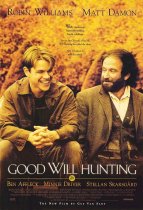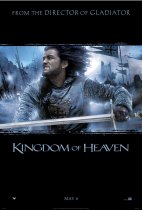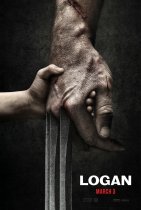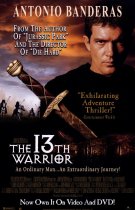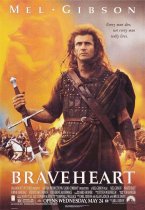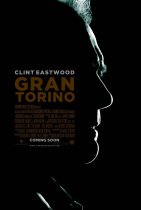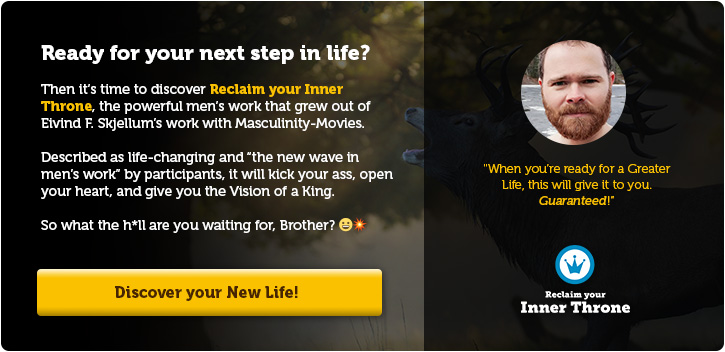Dead Poets Society (1989)
Synopsis
Six young men at the Welton Academy for boys, a boarding school renowned for its excellence, have their lives turned upside down when the charismatic and unconventional John Keating arrives to take the position as their new English teacher. Under Keating’s tutelage, the six boys are initiated into the world of poetry and learn to follow their heart’s desire in pursuit of their life’s passion. He mentors them to seize the day and throw conformity to the wind. But when the secret of the young poets’ new-found interest gets out, guardians of Welton’s ancient ways unite to tear apart the bonds of their seedling brotherhood.

| Genre | Drama |
| Production year | 1989 |
| Director | Peter Weir |
| Male actors | Robin Williams, Ethan Hawke, Robert Sean Leonard |
Accessing the power of lineage
by Eivind Figenschau Skjellum
John Keating’s first lesson takes place outside of the classroom, in the ancient corridors of the Welton Academy. A series of pictures hang on the wall there, of students who walked the corridors when those walls were still young. Keating requests a poem by one of the students, who opens his book and reads:
Gather ye rosebuds while ye may,
Old Time is still a-flying:
And this same flower that smiles to-day
To-morrow will be dying.
It is clear that this is no ordinary teaching and John Keating no ordinary teacher. For Keating then goes on to point out to the boys that they are food for worms, that their death marches imposingly and unstoppably towards them, that they must make the most of what remains before their path comes to an end. They all huddle up around the pictures, looking deeply into the eyes of those long-dead boys, and there is the sense that they are one and the same. They have something to tell you, Keating points out. Lean in closer! Hear it?
Carpe… Carpe Diem. Seize the day boys, make your lives extraordinary.
Carpe Diem
Carpe Diem, memorable words from a movie that has come to define the dreams of many people of its generation. Shown oftentimes in schools to students who at that naïve and immature time perhaps did not understand their significance. Their meaning was nevertheless impressed on the canvas of their subconscious. I still remember this movie.
Carpe Diem is the foundation stone of the initiation given these young men by Keating. Neil Perry, Todd Anderson, Knox Overstreet, Steven Meeks, Richard Cameron, and Gerard Pitts gather regularly in a cave hidden in the woods by the Academy, tapping into the wise minds and hearts of their elders, those Lovers of old – Thoreau, Whitman, Frost – whose words they read aloud in the flickering light of lanterns. They seem to jump right off the page, driven higher and higher by the passion and zest for life that gave them birth. The six young men discover joy there, brotherhood, and their hearts start ripening with the truth of the existential toils of life and death.
Neil is strong in the King archetype, and becomes a natural leader for the boys. Todd is the insecure new guy, whose huge gifts always seem just a hair’s breadth away. The two become good friends, and Neil becomes to Todd like an older brother. Neil and Keating form an invisible alliance as they work their magic on Todd. Neil’s capacity to serve has been strengthened in measure due to his own increasing level of initiation at the hands of Keating and those dead poets, but it is Keating himself who pulls Todd’s first liberating exhalation into freedom from him.
Keating is not after mere obedience, he is after growth, and to that end he challenges his students to write a poem of their own. Todd obediently gets to work. But he is terrified; he cannot speak in front of others – he is too afraid of his own voice. Keating makes it very clear to him that he knows his terror well and challenges him on it in front of everyone in the class as he hands out the assignment. This pointing out and challenging of Todd’s inner enemy is a gift particular to the Masculine. We men – those of us who haven’t been totally feminized – love to find the wound in our brother and put our finger in it. To women, this seems cruel. But to men, this is a gift. It is a challenge to own up to your responsibility as a man to take charge of your fear and wrestle it to the ground through tireless dedication. Keating has cast his glove. Todd cannot chicken out now. His masculine soul has been forced online. He must seize the day.
Todd discovers his voice
As the day comes for the delivery of the poems, Todd nevertheless chickens out and fabricates a way out: “I didn’t write a poem”. Keating calls him on his bullshit, knowing very well what is going on.
Mr. Anderson thinks that everything inside of him is worthless and embarrassing. Isn’t that right, Todd? Isn’t that your worst fear? Well, I think you’re wrong. I think you have something inside of you that is worth a great deal.
Again the finger in the wound, immediately followed by a bandage; the masculine gift at its finest (do not rob your friends of this!). But John Keating won’t tolerate that sort of nonsense, so he summons the power of his own elders, his own lineage of poets and introduces Walt Whitman’s barbaric Yawp (a shout) of existence. I want you to give us a demonstration of a barbaric “yawp”.
The appearance of the yawp is symbolic of the awakening of Todd’s inner warriors, his inner wild man. It is clear that Todd has suffered much psycho-emotional trauma at the hands of his parents, for they have made their love and admiration of him conditional, to be earned if is academic achievements make him deserving of it. This is not explicitly named in the movie, but the evidence is clear for all to see. Such a boy will have very weak inner warriors, because he has lived a life of trying to please, forever trying to achieve the holy grail of unconditional love.
Keating forces Todd to look at the picture of Whitman he has hung in reverence high up. What does he remind you of? Don’t think. Answer. Go on. He is summoning the wild man now, pushing him beyond thinking into the the dirt of primal emotion, of intuitive expression. And then – after a round of mentoring that in any modern school would be labelled abuse (because, in all earnesty, Western school systems have been pussywhipped into degenerate, anti-hierarchical nonsense at the hands of cultural creatives holding high ideals of feminism and postmodernism) – Todd appears. And his friends cheer at the marvel of it all.
Some time later, Todd’s birthday arrives and he receives from his parents the same crappy, unloving present he did last year. No thought, no emotion, no deep care from these parents for their lovely, intelligent child. Men’s worker Robert Moore has said that a boy who isn’t admired by an older man is being hurt. Todd has been hurt so very much. But Neil admires him, as does Keating and by extension also Whitman and the dead poets, and as Neil picks him up from his birthday sulk, he is empowered by lineage when he invites Todd to throw the crappy desk set off of the building (the words of William Wallace in Braveheart “Freeeeeedom” spring to mind).
Neil takes on himself the sins of the fathers
Thanks to the good works of Keating on the hearts and minds of the boys, Neil discovers he has a passion for acting. He applies for the role as Puck in Shakespeare’s A Midsummer Night’s Dream, and gets it! But the word reaches the ear of his father – an afraid and emotionally shut down man – and as he happily enters his room at the Academy one day, his heart sinks; his father is waiting for him. What a tragedy, the mere sight of a boy’s father makes his dreams shatter! What has befallen the father-son-relationship? Where did we go wrong? There was supposed to be mentorship and love! But no, Neil must leave the play. Is that clear?! Yes, sir, Neil answers, feeling his life is over.
Yet the next day Neil stands on stage. Whether it is because he has been given permission as he suggests to Keating or if he defied his father, the film doesn’t tell. What it does tell is that Neil is good. Everybody is in unison agreement. His brothers in the Society cheer, and the theatre explodes with the enthusiastic clapping of hands. Neil has never felt more alive; he has found his passion, his calling. At the exit stands his father, waiting to drag him away. The protests of Knox Overstreet – who has by now seized the day and captured his true love – and a concerned Keating are to no avail.
We’re trying very hard to understand why it is that you insist on defying us. Whatever the reason, we’re not gonna let you ruin your life, Neil’s father insists as he confronts his son in his study, with his wife sitting idly by as silent witness. From the scene, we can see that Neil’s parents have agreed on the unholy alliance that many traditional couples do: Mrs. Perry doesn’t speak up when Mr. Perry speaks her name in vain by claiming “we”, when the feelings – the fears – are his alone; and in turn, some semblance of harmony can remain.
But when a man is so afraid as Mr. Perry, he can not love. Love and fear are mutually exclusive. Some people – indeed most in my experience – feel that fearing for others is a form of love. But there can not be love when there is fear. It is Law. A parent’s fear for his or her child is in reality more often an expression of their attachment to the beauty that was brought into the world than it is of love. It is natural, there is nothing wrong with it really, but do not think that fear is ever an expression of love. Shed that illusion once and for all, fathers! Fear can be replaced by trust and the occasional confrontation in love, with nothing being lost, and much being gained.
You don’t understand, Neil. You have opportunities that I never even dreamt of and I am not going to let you waste them. But it is Mr. Perry who doesn’t understand. He wasted his life because of fear and now he wants his son to make up for it.
In my mother tongue, the English concept called original sin is coined as inherited sin. I did a men’s workshop once when the facilitator explained that his take on this concept of inhe was that it is that baggage of fear and unlove that is passed from generation to generation, from father to son. It will forever remain the responsibility of the son to break that chain, as long as the father is too afraid to claim some responsibilities of his own. But Mr. Perry will not let Neil dispel that chain of sin by breaking free into a life of passion, love and honest enthusiasm. Refusing sin’s redemption is the greatest sin of all.
As Mr. and Mrs. Perry go to bed that night, Neil puts on the crown of sticks that he wore as Puck at the apex of his life, just hours previously. That life is now about to end. For that crown is now the crown of Christ, and Neil is the sacrifice made to make good with the gods for the sins of the fathers.
In the black of night, Mr. Perry wakes up. He feels the terror, knows that something awful has happened. In his study lies Neil, his son, dead. Beside him, his own smoking gun.
The breaking apart of the Society
Nobody accepts responsibility for the dead Neil. Not his father, and not the mouldy old men at the Academy. They know not the heart, how could they understand that they themselves are responsible. How could they understand it and go on living? Heads must roll.
All the boys of the Society are forced by their parents, afraid to be humiliated, to confess to lies about Keating. Keating is fired. As he leaves that classroom for the last time, a once-hallowed place of teaching, now sterilized by the arrival of headmaster Nolan, Todd stands up on his desk and lets out his YAWP! He has found his voice now. “Oh captain, my captain!” sounds his calling; it is Whitman’s calling – the poet has been brought back to life. It resonates in the hearts of those friends of his who have found in themselves new meaning in the Dead Poets that Keating brought to life inside of them, and one after the other, they stand up and sound that crescendo of love – “Oh captain, my captain!”.
Such is the gratitude of a young man who has been admired by an older, and who there has found, in that transmission of love, himself.
Conclusion
Dead Poets Society is a magnificent film about the power of initiation at the hands of an elder. It shows the immense value of lineage, and gives us an insight into the power of transmission that travels from generation to generation (lineage is the positive form of that, inherited sin the negative). This is a film about the power of men long gone to affect the inner lives of those of us who now walk the earth. It’s a movie about the immortal cries of life, sounded by brave men through time immemorial as they stand on the edge of oblivion, confronting their own inevitable death. They can still be heard today, but a mentor must be there to make you hear. MTV, Star Trek and computer games don’t make good mentors. There is no love there. No challenge.
Dead Poets Society is also a film about what happens when an entire generation gives in to fear and walks that wide path, the path that leads to hell with good intentions. But this movie is about the road less travelled, so let’s heed the words of Robert Frost as we end this investigation of Dead Poets Society:
Two roads diverged in the woods
and I took the one less travelled by
And that has made all the difference
Powerful ideas from Dead Poets Society
- We are food for worms. One day, we WILL die. Seize the day before it is no more. This is a task of utmost urgency!
- The powerful play [life] goes on, and you may contribute a verse. Live as if you mean it!
- Young men need an older man who really sees them and admires them if they are to find their true power.
- Young, timid men need to find their inner wild man - their barbaric "Yawp" - to discover the strength to be themselves.
- Sport is a chance for us to have other human beings push us to excel. (More than it is about winning).
- Dead men stay alive in the pages of poetry and literature. You can access their power, enter their lineage, by submerging yourself in their words.
- For any man, there are biological parents and for the fortunate ones, there are spiritual fathers – or mentors. There comes a time in a man's life when the mentor must replace the father as the man to look up to. This is his way to freedom from the many negative energies that exist in him from childhood.



